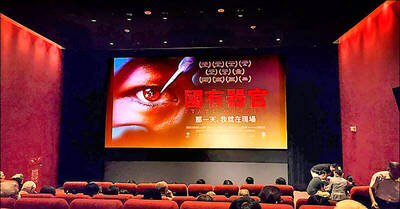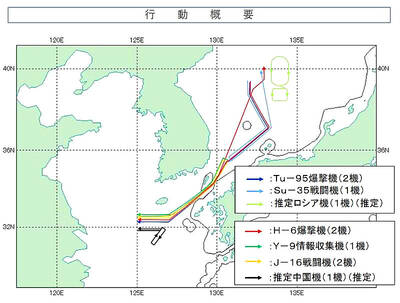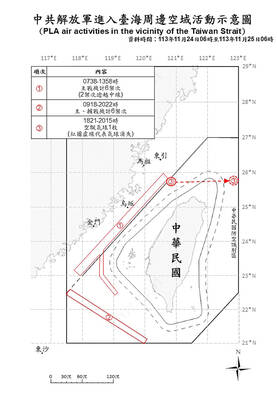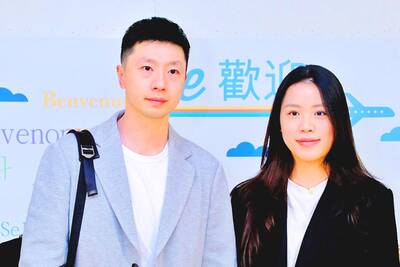The Ministry of National Defense (MND) has formally informed the Kinmen County government that the military has no plans to establish a missile base on the island.
The information was provided after the county government raised concerns about such a possibility following media reports ahead of the January legislative elections that the government was building a missile base on Matsu.
During the legislative election campaign, Kinmen County Commissioner Lee Chu-feng (李炷烽) of the New Party expressed his support for Chinese Nationalist Party (KMT) candidate Wu Cheng-tien (吳成典) because of his strong opposition to establishing a missile base there.
In the letter, the ministry said the military’s long-term combat readiness plans did not, at this stage, include the building of a missile base on Kinmen.
Kinmen County Council Speaker Hsieh Yi-chang (謝宜璋) welcomed the ministry’s letter and said Kinmen’s suffering during previous artillery battles had convinced its population to desire peace.
“People in Kinmen do not want to see their land turn into a battleground over the establishment of a missile base. Never again,” he said.
Since the launch of the “small three links” in early 2001, Hsieh said, Kinmen has become a bridge for exchanged across the Taiwan Strait.
The people of Kinmen, he said, “hope to continue in this role, with the horrors of war nothing but a distant memory.”

Theaters and institutions in Taiwan have received 28 threatening e-mails, including bomb threats, since a documentary critical of China began being screened across the nation last month, the National Security Bureau said yesterday. The actions are part of China’s attempts to undermine Taiwan’s sovereignty, it said. State Organs (國有器官) documents allegations that Chinese government officials engage in organ harvesting and other illegal activities. From last month to Friday last week, 28 incidents have been reported of theaters or institutions receiving threats, including bomb and shooting threats, if they did not stop showing the documentary, the bureau said. Although the threats were not carried out,

The Mainland Affairs Council (MAC) on Friday condemned Chinese and Russian authorities for escalating regional tensions, citing Chinese warplanes crossing the Taiwan Strait’s median line and joint China-Russia military activities breaching South Korea’s air defense identification zone (KADIZ) over the past two days. A total of 30 Chinese warplanes crossed the median line of the Taiwan Strait on Thursday and Friday, entering Taiwan’s northern and southwestern airspace in coordination with 15 naval vessels and three high-altitude balloons, the MAC said in a statement. The Chinese military also carried out another “joint combat readiness patrol” targeting Taiwan on Thursday evening, the MAC said. On

‘GRAY ZONE’ TACTICS: China continues to build up its military capacity while regularly deploying jets and warships around Taiwan, with the latest balloon spotted on Sunday The US is drawing up contingency plans for military deployments in Japan and the Philippines in case of a Taiwan emergency, Japan’s Kyodo news agency reported. They would be incorporated in a first joint operation plan to be formulated in December, Kyodo reported late on Sunday, citing sources familiar with Japan-US relations. A US Marine Corps regiment that possesses High Mobility Artillery Rocket Systems — a light multiple rocket launcher — would be deployed along the Nansei Island chain stretching from Kyushu to Yonaguni near Taiwan, Kyodo said. According to US military guidelines for dispatching marines in small formations to several locations,

The Mainland Affairs Council (MAC) yesterday confirmed that Chinese students visiting Taiwan at the invitation of the Ma Ying-jeou Foundation were almost all affiliated with the Chinese Communist Party (CCP). During yesterday’s meeting convened by the legislature’s Foreign Affairs and National Defense Committee, Democratic Progressive Party (DPP) Legislator Michelle Lin (林楚茵) asked whether the visit was a way to spread China’s so-called “united front” rhetoric, to which MAC Deputy Ministry Shen You-chung (沈有忠) responded with the CCP comment. The MAC noticed that the Chinese individuals visiting Taiwan, including those in sports, education, or religion, have had increasingly impressive backgrounds, demonstrating that the